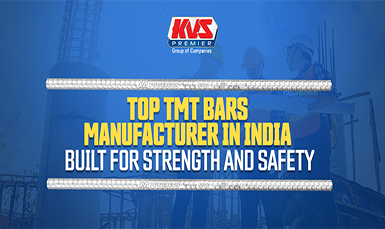

Exploring the Top 6 Industrial Uses of Steel Channels
A few of the most versatile construction components currently being used today in a wide range of industries are bound by the versatility of one design: the C-shaped, steel channels, which include mild steel (MS) channels, combine structural integrity and flexibility in a single design due to their strength, durability, and adaptability. Because of these qualities, steel channels are used essentially in most sectors of industrial use.
Key Industrial Uses of Steel Channels
The following are the top uses of steel channels and why they are a go-to choice in the construction and manufacturing industries. Here are some of them:
Vehicle and Trailer Frames
Automotive and transport industries require steel channels for the production of car frames, chassis, and trailers. Steel channels are used to provide minimum weight with maximum solidity, which is essential for maintaining structural strength in vehicles. Weight distribution also provides stability within the structure while reducing the total weight of the structure, thus making it lighter, saving fuel, and its use in vehicles.
Manufacturing of Conveyor Systems
Conveyors that are used in a manufacturing process to move items along an assembly line is essentially the heart of any manufacturing operation. The basic frameworks of these conveyors typically constitute a steel channel or channels in the form of steel that carries rollers or belts to push materials and products through stages of various production processes. The strength and precision provided by steel channels make such systems efficient as well as ensure reliable consistent performance under demanding conditions.
Bridges and Infrastructure Projects
In infrastructural construction, the key role of steel channels is mainly utilized in building and strengthening bridges. This will help in providing ground for support structures against heavy loading and also prevent the failure of structures. MS channels, which are particularly known for their corrosion resistance along with tensile strength, have outdoor applications where durability is most crucial. Their use in bridge construction ensures safety as well as stability over long spans.
Electrical and Mechanical Support Systems
Steel channels are also applied in the manufacturing of frames for electrical installation including cable trays and support structures for electrical conduits. They enhance cable organization as well as wiring in large industrial facilities, promoting safety along with easy access to inspect or do repairs on them. Other than that, mechanical equipment is carried by them so that installations may have stability with full accessibility to check or make some repairs on them.
Scaffolding
Scaffolding is part of the primary elements used in any construction operation, especially when access is needed to areas that are high or even difficult to access. Steel channels find a lot of applicability within scaffolding systems, specifically for strength and stability. Their ability to support heavy weights and withstand constant load shifting makes it possible for workers to walk across platforms without risking massive damage. Thus, utilizing steel channels in scaffolding promotes a safe working area by minimizing risks associated with such construction or repair projects.
Railway Tracks and Supports
Steel channels are quite an important part of railway building. They are seen in the production of railway track frameworks and supporting structures. Designing them provides an even weight distribution and improved stability of railway tracks, thus guaranteeing a safe and efficient transportation system. MS channels are especially useful in railway projects because they are strong yet less expensive about wear and tear.
Conclusion
Steel channels are very useful in many industrial uses, such as in construction and machinery frameworks. Their unique design, strength, and adaptability make them an essential material the industries, particularly if improvements in safety, durability, and efficiency are to be made. With rising demands for strong materials, steel channels, especially MS channels, are sure to dominate innovation in various industrial sectors. The flexibility with which these channels fulfill structural as well as support needs in multiple industries only strengthens the position of these as one of the most reliable components in industrial applications.






Leave A Comment